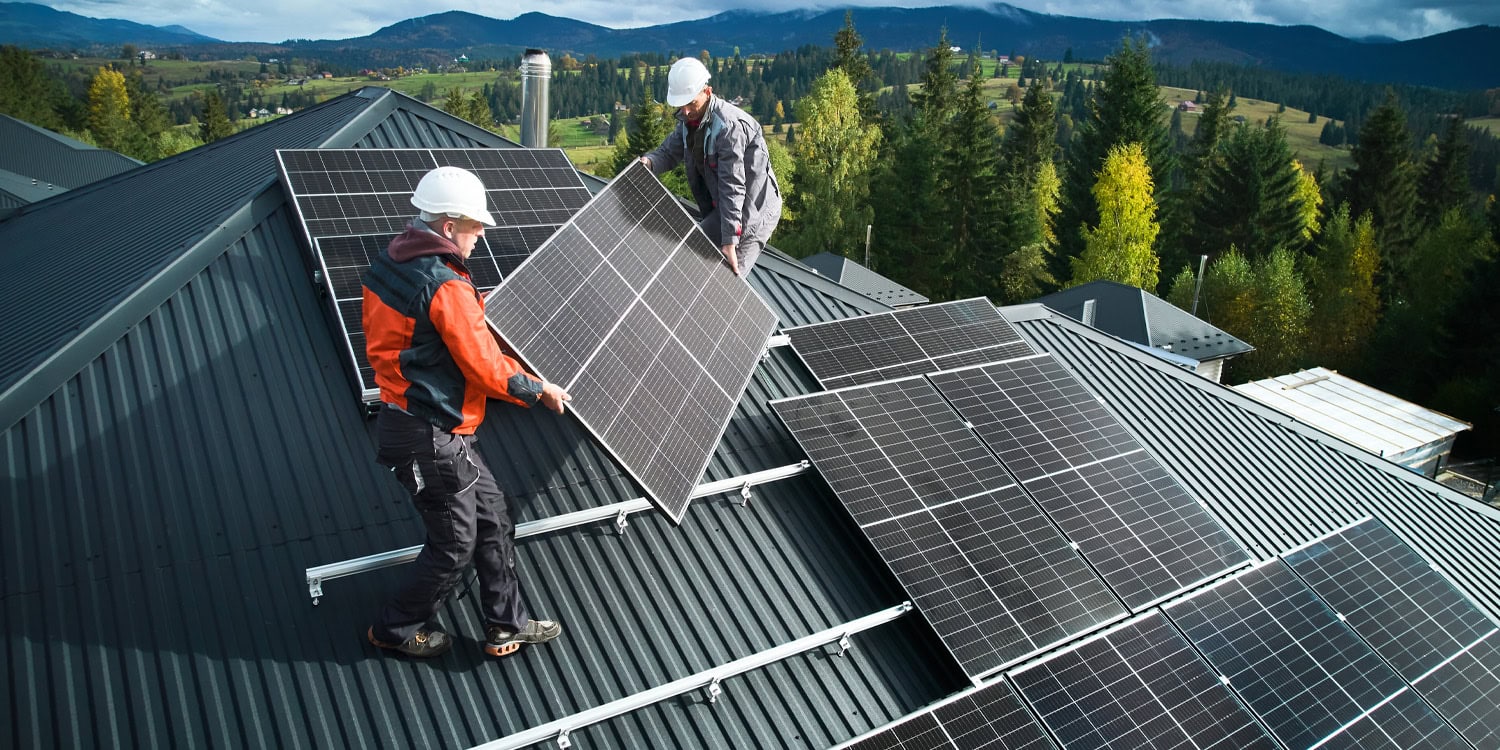A new study has revealed that homeowners’ political affiliations are associated with their decision to install solar panels, but this effect tends to weaken when solar energy becomes more cost-effective. Published in the Proceedings of the National Academy of Sciences, the research found that Democratic homeowners are about 1.45 times more likely to adopt solar energy than Republicans. However, Republicans appeared more sensitive to the financial benefits of solar energy as its economics improved.
Climate risk mitigation relies heavily on transitioning from fossil fuels to renewable energy sources, such as solar power. Yet political divisions in the country, particularly regarding environmental issues, have raised questions about whether political affiliations affect household energy choices. While surveys show that people across the political spectrum support clean energy, research suggests differences in how conservatives and liberals prioritize the economic versus environmental benefits of renewable energy.
This study set out to directly examine the connection between homeowners’ political affiliations and their decisions to install residential solar panels, addressing the need for more comprehensive data on how political identity influences real-world energy choices.
To conduct the study, researchers analyzed a decade’s worth of data on solar panel installations in New York State, from 2010 to 2020. They linked three large datasets: records of solar incentive program participation, county property assessment data, and the New York State voter registration file. This allowed them to track solar installations at the household level while also considering the political affiliations of homeowners. The final dataset included information on 62,972 solar installations out of more than 5.5 million households.
The researchers compared households that adopted solar panels with neighboring homes that did not, creating a control group. This approach allowed them to examine the role of political affiliation in solar adoption while controlling for variables like property size, market value, and other household characteristics. They also analyzed how economic factors, such as electricity rates and the availability of financing options like solar leases, influenced adoption decisions.
The study found a clear partisan gap in solar adoption. Democratic homeowners were the most likely to install solar panels, followed by independents and unaffiliated voters. Republican homeowners had the lowest rate of solar adoption. Despite this, Republicans showed a greater responsiveness to economic factors, such as rising electricity costs and the availability of financing options. When electricity rates increased, Republicans were more likely than Democrats to adopt solar panels, suggesting that the financial appeal of solar can reduce the partisan gap.
The research also revealed that while Democrats were more likely to install solar panels overall, Republicans tended to adopt more cost-effective systems. Republican homeowners were more likely to take advantage of third-party ownership models, such as leases or power purchase agreements, which require less upfront investment. These financing options seemed particularly attractive to Republicans when solar system costs were high.
Interestingly, while Democrats appeared motivated by the environmental benefits of solar energy, Republicans seemed to prioritize its financial advantages. This was reflected in the fact that solar installations by Republican homeowners tended to have higher long-term economic value, or net present value (NPV), compared to those installed by Democrats.
While the study offers insights into how political identity influences solar adoption, it has some limitations. The research was conducted in a single state, New York, which may not represent the national context. New York has relatively high electricity rates and generous solar incentives, factors that may not apply equally across other states. The study also relied on observational data, meaning that the researchers could not definitively establish causal relationships between political affiliation and solar adoption.
Despite these limitations, the study provides a strong foundation for understanding how political identity interacts with economic factors to shape energy behavior. It also underscores the importance of making solar energy more financially accessible, as improving the economics of solar could help close the partisan gap and increase overall adoption.
“The study carries important implications for strategies aimed at accelerating residential [solar] deployment. Bridging the partisan gap in [solar power] adoption is important for at least two reasons. First, underadoption by Republican homeowners would significantly limit residential [solar]’s potential to mitigate [greenhouse gas] emissions. Republicans own homes at higher rates than Democrats,” the researchers wrote. “In New York, despite being outnumbered by Democrats in the voter file by a factor of 2.1 to 1, Republicans own nearly as many homes (0.9 for constitute a potentially important political constituency that has an interest in policies and regulations that favor distributed solar and electrification and could therefore help to ‘lock-in’ a decarbonization policy trajectory.”
The study, “Party affiliation predicts homeowners’ decisions to install solar PV, but partisan gap wanes with improved economics of solar,” was authored by Fedor A. Dokshin and Mircea Gherghina.




